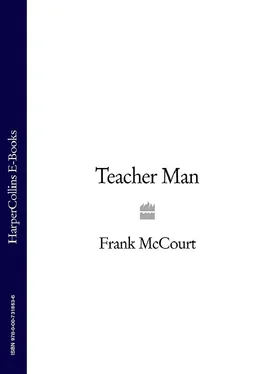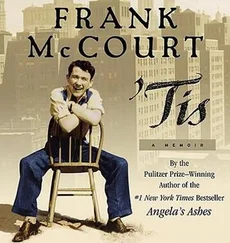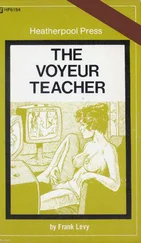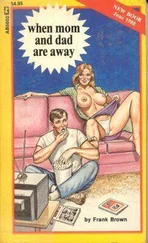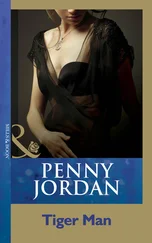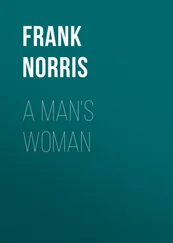Frank McCourt
A Memoir
Dedication Dedication Prologue Part I: It’s A Long Road To Pedagogy Chapter One Chapter Two Chapter Three Chapter Four Chapter Five Chapter Six Chapter Seven Chapter Eight Part II: Donkey On A Thistle Chapter Nine Chapter Ten Chapter Eleven Part III: Coming Alive In Room 205 Chapter Twelve Chapter Thirteen Chapter Fourteen Chapter Fifteen Chapter Sixteen Chapter Seventeen Chapter Eighteen Acknowledgments Also By Frank McCourt Copyright About the Publisher
To the next generations of the Tribe McCourt:
Siobhan (daughter of Malachy) and her children, Fiona and Mark Malachy of Bali (son of Malachy) Nina (stepdaughter of Malachy) Mary Elizabeth (daughter of Michael) and her daughter, Sophia Angela (daughter of Michael) Conor (son of Malachy) and his daughter, Gillian Cormac (son of Malachy) and his daughter, Adrianna Maggie (daughter of Frank) and her children, Chiara, Frankie, and Jack Allison (daughter of Alphie) Mikey (son of Michael) Katie (daughter of Michael)
Sing your song, dance your dance, tell your tale .
Title Page Frank McCourt
Dedication Dedication Dedication Prologue Part I: It’s A Long Road To Pedagogy Chapter One Chapter Two Chapter Three Chapter Four Chapter Five Chapter Six Chapter Seven Chapter Eight Part II: Donkey On A Thistle Chapter Nine Chapter Ten Chapter Eleven Part III: Coming Alive In Room 205 Chapter Twelve Chapter Thirteen Chapter Fourteen Chapter Fifteen Chapter Sixteen Chapter Seventeen Chapter Eighteen Acknowledgments Also By Frank McCourt Copyright About the Publisher To the next generations of the Tribe McCourt: Siobhan (daughter of Malachy) and her children, Fiona and Mark Malachy of Bali (son of Malachy) Nina (stepdaughter of Malachy) Mary Elizabeth (daughter of Michael) and her daughter, Sophia Angela (daughter of Michael) Conor (son of Malachy) and his daughter, Gillian Cormac (son of Malachy) and his daughter, Adrianna Maggie (daughter of Frank) and her children, Chiara, Frankie, and Jack Allison (daughter of Alphie) Mikey (son of Michael) Katie (daughter of Michael) Sing your song, dance your dance, tell your tale .
Prologue
Part I: It’s A Long Road To Pedagogy
Chapter One
Chapter Two
Chapter Three
Chapter Four
Chapter Five
Chapter Six
Chapter Seven
Chapter Eight
Part II: Donkey On A Thistle
Chapter Nine
Chapter Ten
Chapter Eleven
Part III: Coming Alive In Room 205
Chapter Twelve
Chapter Thirteen
Chapter Fourteen
Chapter Fifteen
Chapter Sixteen
Chapter Seventeen
Chapter Eighteen
Acknowledgments
Also By Frank McCourt
Copyright
About the Publisher
If I knew anything about Sigmund Freud and psychoanalysis I’d be able to trace all my troubles to my miserable childhood in Ireland. That miserable childhood deprived me of self-esteem, triggered spasms of self pity, paralyzed my emotions, made me cranky, envious and disrespectful of authority, retarded my development, crippled my doings with the opposite sex, kept me from rising in the world and made me unfit, almost, for human society. How I became a teacher at all and remained one is a miracle and I have to give myself full marks for surviving all those years in the classrooms of New York. There should be a medal for people who survive miserable childhoods and become teachers, and I should be first in line for the medal and whatever bars might be appended for ensuing miseries.
I could lay blame. The miserable childhood doesn’t simply happen. It is brought about. There are dark forces. If I am to lay blame it is in a spirit of forgiveness. Therefore, I forgive the following: Pope Pius XII; the English in general and King George VI in particular; Cardinal MacRory, who ruled Ireland when I was a child; the bishop of Limerick, who seemed to think everything was sinful; Eamonn De Valera, former prime minister (Taoiseach) and president of Ireland. Mr. De Valera was a half-Spanish Gaelic fanatic (Spanish onion in an Irish stew) who directed teachers all over Ireland to beat the native tongue into us and natural curiosity out of us. He caused us hours of misery. He was aloof and indifferent to the black and blue welts raised by schoolmaster sticks on various parts of our young bodies. I forgive, also, the priest who drove me from the confessional when I admitted to sins of self-abuse and self-pollution and penny thieveries from my mother’s purse. He said I did not show a proper spirit of repentance, especially in the matter of the flesh. And even though he had hit that nail right on the head, his refusal to grant me absolution put my soul in such peril that if I had been flattened by a truck outside the church he would have been responsible for my eternal damnation. I forgive various bullying schoolmasters for pulling me out of my seat by the sideburns, for walloping me regularly with stick, strap and cane when I stumbled over answers in the catechism or when in my head I couldn’t divide 937 by 739. I was told by my parents and other adults it was all for my own good. I forgive them for those whopping hypocrisies and wonder where they are at this moment. Heaven? Hell? Purgatory (if it still exists)?
I can even forgive myself, though when I look back at various stages of my life, I groan. What an ass. What timidities. What stupidities. What indecisions and flounderings.
But then I take another look. I had spent childhood and adolescence examining my conscience and finding myself in a perpetual state of sin. That was the training, the brainwashing, the conditioning and it discouraged smugness, especially among the sinning class.
Now I think it time to give myself credit for at least one virtue: doggedness. Not as glamorous as ambition or talent or intellect or charm, but still the one thing that got me through the days and nights.
F. Scott Fitzgerald said that in American lives there are no second acts. He simply did not live long enough. In my case he was wrong.
When I taught in New York City high schools for thirty years no one but my students paid me a scrap of attention. In the world outside the school I was invisible. Then I wrote a book about my childhood and became mick of the moment. I hoped the book would explain family history to McCourt children and grandchildren. I hoped it might sell a few hundred copies and I might be invited to have discussions with book clubs. Instead it jumped onto the best-seller list and was translated into thirty languages and I was dazzled. The book was my second act.
In the world of books I am a late bloomer, a johnny-come-lately, new kid on the block. My first book, Angela’s Ashes , was published in 1996 when I was sixty-six, the second,’ Tis , in 1999 when I was sixty-nine. At that age it’s a wonder I was able to lift the pen at all. New friends of mine (recently acquired because of my ascension to the best-seller lists) had published books in their twenties. Striplings.
So, what took you so long?
I was teaching, that’s what took me so long. Not in college or university, where you have all the time in the world for writing and other diversions, but in four different New York City public high schools. (I have read novels about the lives of university professors where they seemed to be so busy with adultery and academic in-fighting you wonder where they found time to squeeze in a little teaching.) When you teach five high school classes a day, five days a week, you’re not inclined to go home to clear your head and fashion deathless prose. After a day of five classes your head is filled with the clamor of the classroom.
Читать дальше
